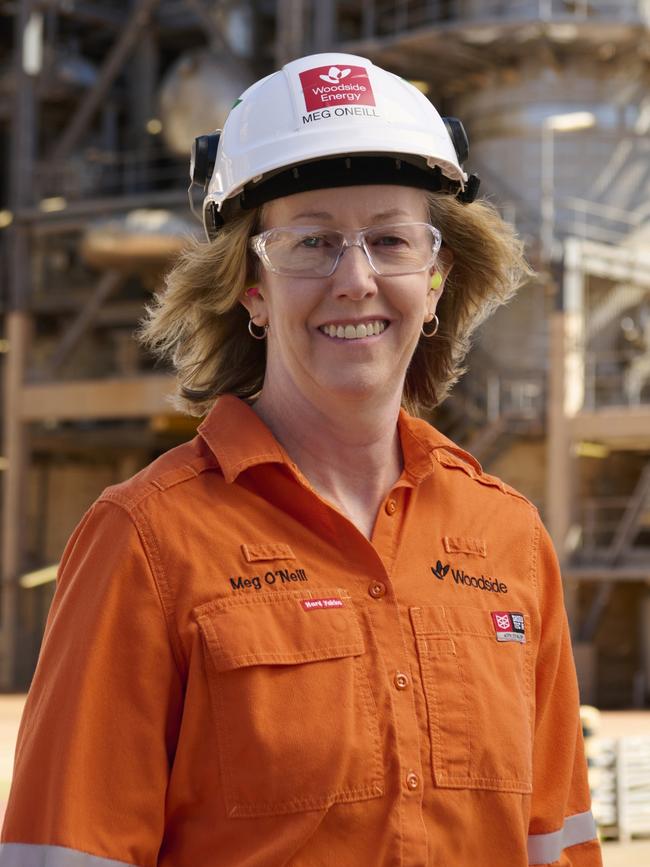
Article by Paul Garvey and Perry Williams, courtesy of The Australian.

The nation’s top energy chiefs have warned a post-election hung parliament will be a “nightmare” and a “quiet menace” responsible for “horrific” policy outcomes leading to the slashing of living standards, amid fears Anthony Albanese could be left hostage to a crossbench dominated by Greens and teal independents.
Beach Energy chief executive Brett Woods has implored Australians to vote for either Labor or the Coalition at the upcoming federal poll, even if it feels like switching to a hated football team, in order to stop the nation falling to a state of higher unemployment and severe energy shortages.
And Woodside Energy chief executive Meg O’Neill – whose $30bn North West Shelf extension project appears to be most at threat in the event of a hung parliament – said a balance of power featuring the Greens and teals would “frankly … be a nightmare”.
Mr Woods – who has run the Kerry Stokes-owned oil producer, which has projects in South Australia, Western Australia and Victoria, since last year – also warns the Greens will leave voters’ wallets “battered and bruised” if they get anywhere near power.
The Greens told The Australian on Monday they would use the cancellation of Woodside’s North West Shelf extension project as a bargaining chip if the Prime Minister needed their support to form government. Teal MP Kate Chaney has also urged Environment Minister Tanya Plibersek to block the project.


Mr Woods writes in The Australian on Wednesday that a hung parliament would “progress extreme ideology” and that the Greens and teals do not have a “pragmatic, educated” attitude to policy. “Australians should be aware we are close to handing over the keys to a minority government and that will be a horrific outcome for Australians who are already suffering deeply from cost-of-living pressures,” he writes.
“So if you feel like your hip pocket has a dull ache now, it will be battered and bruised if the Greens are handed more sway in the parliament.
“A minority government risks handing over exorbitant power to a small collection of shuttered MPs wholly concerned with their narrow agenda rather than the greater good of the nation. While it may be hard for some to envision voting for the opposing major party – akin to crossing over from the Crows to Power or Rabbitohs to Roosters for some – if you care about the future of this country those protest votes need to be directed away from any minor parties, teals and independents who don’t hold a pragmatic, educated and holistic strategy to make Australia a better place to live.”
Ms O’Neill said the Greens and/or the teals holding the balance of power federally would be “bad for households, bad for business and bad for the environment”. “Frankly, it would be a nightmare,” she said.
The Woodside chief said she was “beyond frustrated” with the ongoing delays with the North West Shelf approval, and the growing uncertainty risked tightening domestic gas supplies by deterring investment in new gas wells. She said anyone opposing the North West Shelf on climate grounds was “absolutely wrong”.
“The outcome of taking gas out of the WA economy is to extend the life of coal,” Ms O’Neill said.
“If you are serious about climate change, you should be backing this project. If you are serious about keeping energy prices affordable for households that are struggling today, you should be backing this project.”
US energy giant Chevron warned about the risks of “partisan politics” hurting Australia’s interests, while former Reserve Bank board member Mark Barnaba said the nation’s future investment was at risk if a government could not rule with authority.
“If there’s an outcome where good policy can’t be executed, and a situation arises where a government – due to having to negotiate with too many separate parties – can’t really implement sensible policy, then the biggest loser in that situation is the country itself,” Mr Barnaba said.
He said Australia’s ability to attract international investment could be at risk if the government was perceived to be applying policy inconsistently or “in a constrained manner”.
“If you keep finding reasons to block rather than reasons to encourage investment, we will not have any,” he said.
Chevron Australia director of operations Danny Woodall – who is responsible for the huge Gorgon and Wheatstone LNG projects in WA – said the nation needed policies that would enable Australia’s energy security and economic growth while advancing lower carbon aspirations.
“The energy challenges facing Australia underscore the need for stable fiscal and regulatory settings which support investment in the development of the country’s energy resources,” Mr Woodall said. “Acting in Australia’s best interests requires a better, more pragmatic conversation about energy, and for partisan politics to be set aside.”
The North West Shelf is shaping as the biggest, most immediate test of the Albanese government, with Ms Plibersek currently scheduled to make a decision on the extension by March 31.
She delayed her decision earlier this month while her department sought the latest findings from the WA government’s rock art monitoring program. The massive LNG project sits on a peninsula that is home to more than one million ancient petroglyphs, and activists, environmentalists and some scientists have long argued that emissions from nearby industry are harming the rock art.
With expectations of an April election growing, there is an increased likelihood of the government entering caretaker mode before that deadline.
In Senate estimates on Monday night, Department of Climate Change, Energy, the Environment and Water department head Bruce Edwards said there was still a path for the minister to make decisions on projects during the caretaker period. “It’s really the minister’s call about whether something is sensitive,” he said.
If Ms Plibersek decided to push ahead with a decision in that period, Mr Edwards said she would consult with the opposition and others before making a decision.
While the Coalition has indicated it would support any such approval request from Ms Plibersek during a caretaker period, opposition environment spokesman Jonathon Duniam said he did not expect to hear from the minister.
“We expect that the Minister will leave this decision on the backburner because she truly does not want this project to go ahead,” Senator Duniam said.
WA Premier Roger Cook said on Tuesday that using politics to stop the project would be an act of “economic vandalism”.
“Quite frankly, I’m disgusted to hear that the teals and the Greens would contemplate such a measure,” Mr Cook said.
He described the project as an important part of the nation’s economy. “It’s clear that the teals don’t understand what keeps this economy moving,” he said.
Mr Albanese backed Ms Plibersek in her handling of the North West Shelf application. “These matters are before the Environment Minister. The Environment Minister responds in accordance with the law,” he said.